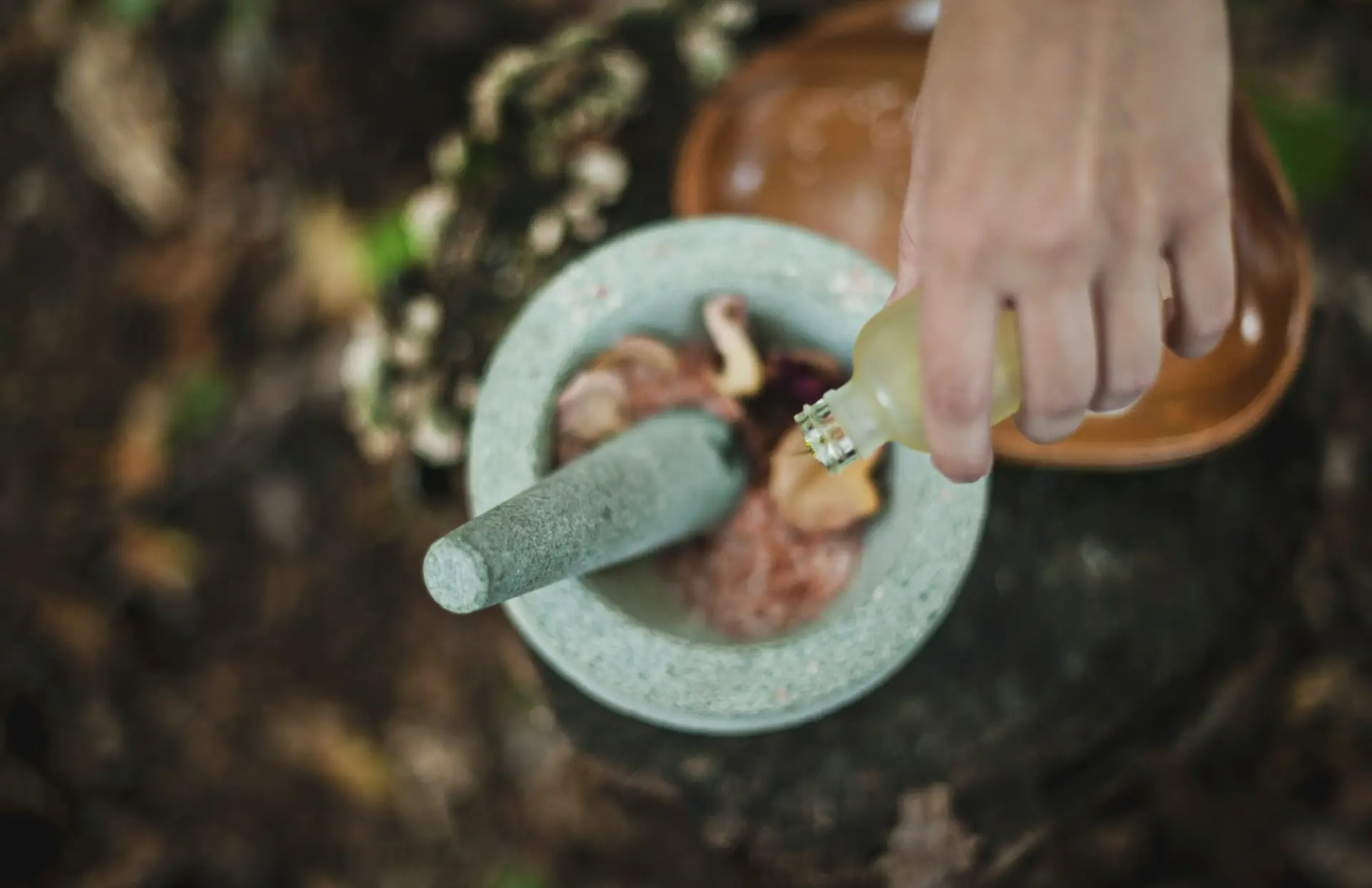Herbal Medicines

Herbal medicine has been used for centuries to treat various ailments and promote overall health and wellness. In recent years, there has been a growing interest in natural remedies, and many people are turning to herbal medicine as a way to improve their health. The good news is that many herbal remedies can be easily purchased at the supermarket or pharmacy without a prescription.
As someone who is interested in natural health and wellness, I have always been intrigued by the benefits of herbal medicine. While prescription medications can be effective, they often come with a long list of potential side effects. Herbal remedies, on the other hand, are often gentler on the body and can be just as effective in treating certain conditions. Moreover,herbal medicine can be a great alternative to traditional pharmaceuticals. But finding the right herbs can be a challenge, especially if you’re not sure where to look. That’s why I’ve put together this guide to three examples of herbal medicine that you can easily purchase at your local supermarket or pharmacy, with no prescription required. I will discuss them and give reasons why people prefer them. I will also give my thoughts on them.
These three herbal medicine include
- Echinacea Herbal Medicine
- Ginger Herbal Medicine
- St. John’s wort Herbal Medicine
Echinacea Herbal Medicine:
Echinacea is a plant that has been used for centuries as a natural remedy for various ailments. Also known as the purple coneflower, Echinacea is believed to have immune-boosting properties and is commonly used to treat colds, flu, and other respiratory infections. It is available in various forms, including teas, capsules, and extracts.While Echinacea is widely used as a natural remedy, there is some debate about its effectiveness. Some studies have shown that Echinacea can reduce the duration and severity of colds and flu, while others have found no significant benefits. Despite the conflicting evidence, many people continue to use Echinacea asa natural alternative to conventional medicine. In this article, we will explore the benefits and potential risks of using Echinacea as a herbal medicine.
History and Background
Echinacea is a herbal medicine that has been used for centuries to treat various ailments. The plant is native to North America and was used by Native Americans for medicinal purposes. The name “Echinacea” comes from the Greek word “echinos,” which means hedgehog, referring to the spiky center of the flower.In the late 1800s, Echinacea became popular among European settlers in North America as a treatment for colds and flu. It was later used to treat other respiratory infections, as well as skin conditions, wounds, and snake bites.
In the early 1900s, Echinacea fell out of favor as antibiotics became more widely available. However, in recent years, there has been a renewed interest in Echinacea as a natural remedy for colds and flu, as well as for boosting the immune system.
There are nine species of Echinacea, but the three most commonly used for medicinal purposes are Echinacea purpurea, Echinacea angustifolia, and Echinacea pallida. These species are known for their immune-boosting properties and are often used in combination with other herbs to treat various conditions.
Overall, Echinacea has a long and rich history as a natural remedy for various ailments. While more research is needed to fully understand its benefits and potential side effects, many people continue to use Echinacea as a natural alternative to traditional medicine.
Ingredients of Echinacea Herbal Medicine
Echinacea is a popular herbal medicine that has been used for centuries to treat various ailments. The plant contains a complex mixture of chemical compounds, including essential oils, flavonoids, polysaccharides, and alkamides.
Essential oils are volatile compounds that give Echinacea its characteristic aroma. They are composed of terpenes, such as limonene and caryophyllene, which have anti-inflammatory and antimicrobial properties.
Flavonoids are a group of compounds that are widely distributed in the plant kingdom. Echinacea contains several flavonoids, including quercetin, kaempferol, and apigenin. These compounds have antioxidant properties and may help to boost the immune system.
Polysaccharides are complex carbohydrates that are found in the cell walls of Echinacea. They are composed of long chains of sugars, such as glucose and fructose, and are believed to stimulate the immune system.
Alkamides are a unique group of compounds that are found only in Echinacea. They are composed of fatty acids and amino acids and have been shown to have immunomodulatory and anti-inflammatory effects.
Ginger Herbal Medicine
History of Ginger Herbal Medicine
Ginger has been used as a medicinal herb for thousands of years. Its use dates back to ancient times in India and China, where it was used to treat a variety of ailments, including digestive issues, respiratory problems, and joint pain.
In Ayurvedic medicine, ginger is considered a “universal medicine” and is used to treat a wide range of conditions. In traditional Chinese medicine, ginger is used to improve digestion, relieve nausea, and reduce inflammation.
Ginger was also used in ancient Greece and Rome. It was highly prized for its medicinal properties and was used to treat everything from headaches to menstrual cramps.
During the Middle Ages, ginger became a valuable commodity in Europe. It was used to flavor food and beverages and was believed to have medicinal properties. It was also used to treat the bubonic plague, which was rampant at the time.
In the 16th century, ginger was introduced to the Americas by Spanish explorers. It quickly became popular and was used by Native Americans to treat a variety of ailments.
Today, ginger is still widely used as a medicinal herb. It is commonly used to treat nausea, vomiting, and motion sickness. It is also used to treat arthritis, menstrual cramps, and respiratory infections.
Ingredients of Ginger Herbal Medicine
Ginger is a popular herb used for its medicinal properties. It is used in various forms such as fresh, dried, powdered, or as an oil or juice. Ginger herbal medicine is made from the roots of the ginger plant, scientifically known as Zingiber officinale.
The active components of ginger that are responsible for its therapeutic effects are gingerols and shogaols. These compounds have anti-inflammatory, antioxidant, and anti-cancer properties. Ginger also contains other essential nutrients like carbohydrates, dietary fiber, protein, vitamins, and minerals.
Here are some of the key ingredients found in ginger herbal medicine:
- Gingerols: These are the primary active compounds in ginger that are responsible for its anti-inflammatory and antioxidant properties. They also have pain-relieving effects and can help reduce nausea and vomiting.
- Shogaols: These are the dehydrated form of gingerols and are more potent in their effects. They are known for their anti-inflammatory and anti-cancer properties.
- Carbohydrates: Ginger contains various carbohydrates like starch, sucrose, and fructose. These are essential for providing energy to the body.
- Dietary Fiber: Ginger is a good source of dietary fiber that helps regulate bowel movements and prevents constipation.
- Protein: Ginger contains some amount of protein that is essential for building and repairing tissues in the body.
- Vitamins: Ginger is a rich source of vitamins like vitamin C, vitamin B6, and vitamin E. These vitamins are essential for maintaining good health and boosting the immune system.
- Minerals: Ginger is also a good source of minerals like potassium, magnesium, and manganese. These minerals are important for maintaining healthy bones, muscles, and nerves.
Overall, ginger herbal medicine is made up of a variety of essential nutrients and compounds that provide numerous health benefits. It is a safe and effective natural remedy for various ailments and can be used in various forms to suit individual preferences.
St. John’s Wort Herbal Medicine
History of St. John’s Wort Herbal Medicine
St. John’s Wort has been used as a medicinal herb for centuries. I find it fascinating that the plant has been mentioned in ancient texts, such as the Bible and the works of Hippocrates. In fact, its name comes from the fact that it blooms around June 24th, which is St. John the Baptist’s birthday.The use of St. John’s Wort as a treatment for depression dates back to ancient Greece. Hippocrates, the father of modern medicine, recommended the herb for various ailments, including anxiety and nerve pain. During the Middle Ages, it was used to treat wounds and burns. In the 19th century, it became popular in Europe as a treatment for depression and anxiety.In the United States, St. John’s Wort gained popularity in the 1990s as a natural alternative to prescription antidepressants. It was widely available over the counter and was touted as a safe and effective treatment for mild to moderate depression. However, research has since shown that St. John’s Wort can interact with other medications and may not be as effective as once thought.
Despite its controversial status, St. John’s Wort remains a popular herbal remedy. It is used to treat a variety of conditions, including depression, anxiety, and nerve pain.
Ingredients of St. John’s Wort Herbal Medicine
Hypericin is one of the main active ingredients in St. John’s wort. It is a red pigment found in the flowers and leaves of the plant. Hypericin has been shown to have antidepressant properties by inhibiting the reuptake of serotonin, dopamine, and norepinephrine in the brain.Studies have also suggested that hypericin may have antiviral and anticancer properties. However, more research is needed to confirm these potential benefits.
Hyperforin is another active ingredient in St. John’s wort. It is a yellow pigment found in the plant’s flowers and leaves. Hyperforin has been shown to have antidepressant effects by increasing the levels of serotonin, dopamine, and norepinephrine in the brain.Hyperforin also has antibacterial and anti-inflammatory properties. It has been used to treat wounds, burns, and other skin conditions.
- Ginkgo Biloba: This herb is commonly used in combination with St. John’s Wort to help improve cognitive function, memory, and concentration. It is also believed to have antidepressant properties.
- Valerian Root: Valerian root is often added to St. John’s Wort herbal medicine to help with anxiety and insomnia. It is believed to have a calming effect on the nervous system.
- Passionflower: Passionflower is another herb that is often added to St. John’s Wort herbal medicine to help with anxiety and insomnia. It is believed to have a sedative effect on the nervous system.
- Chamomile: Chamomile is often added to St. John’s Wort herbal medicine to help with anxiety, depression, and insomnia. It is believed to have a calming effect on the nervous system.
- Lemon Balm: Lemon balm is another herb that is often added to St. John’s Wort herbal medicine to help with anxiety and insomnia. It is believed to have a calming effect on the nervous system.
- Skullcap: Skullcap is often added to St. John’s Wort herbal medicine to help with anxiety and insomnia. It is believed to have a sedative effect on the nervous system.
Why People Take Echinacea Herbal Medicine
Echinacea is a popular herbal medicine that has been used for centuries to treat various ailments. It is derived from the leaves, flowers, and roots of the Echinacea plant, which is native to North America. Here are some reasons why people take Echinacea herbal medicine:
Boosting Immune System
One of the most common reasons people take Echinacea is to boost their immune system. Echinacea contains compounds that are believed to stimulate the immune system, which can help the body fight off infections and diseases.
Treating Cold and Flu
Echinacea is also commonly used to treat cold and flu symptoms. It is believed to help reduce the severity and duration of these illnesses by boosting the immune system and reducing inflammation.
Relieving Pain and Inflammation
Echinacea has anti-inflammatory properties, which means it can help reduce pain and inflammation in the body. Some people take Echinacea to relieve pain from conditions such as arthritis, sore throat, and headaches.
Other reasons why people take it
Echinacea has been used for various other purposes, such as treating skin conditions, promoting wound healing, and reducing anxiety. However, more research is needed to determine the effectiveness of Echinacea for these uses.
Why people use Ginger Herbal Medicine
Ginger is a popular spice that has been used for centuries as a natural remedy for various ailments. It has a strong, pungent taste and aroma and is commonly used in cooking, as well as in traditional medicine. Here are some of the benefits of ginger:
- Anti-inflammatory properties: Ginger contains compounds that have anti-inflammatory properties, which can help reduce inflammation in the body. This makes it a popular remedy for conditions such as osteoarthritis and rheumatoid arthritis.
- Relief from nausea: Ginger has been shown to be effective in reducing nausea and vomiting, particularly in pregnant women and those undergoing chemotherapy.
- Lowering blood sugar levels: Some studies suggest that ginger may help lower blood sugar levels, making it a potential natural remedy for people with diabetes.
- Reducing menstrual pain: Ginger has been shown to be effective in reducing pain and discomfort associated with menstrual cramps.
- Reducing cholesterol levels: Some studies suggest that ginger may help reduce cholesterol levels, which can help lower the risk of heart disease.
Why people take St. John’s Wort Herbal Medicine
St. John’s Wort is a popular herbal medicine that has been used for centuries by people due to its ability to treat various ailments. As someone who has extensively researched and used this herb, I can confidently say that it has numerous benefits and this is why people use it. Example of it’s benefits include:
- Depression and Anxiety: St. John’s Wort is commonly used to treat mild to moderate depression and anxiety. Studies have shown that it can be just as effective as prescription antidepressants, but with fewer side effects. It is believed that the herb works by increasing the levels of serotonin, dopamine, and norepinephrine in the brain.
- Nerve Pain: St. John’s Wort has been found to be effective in treating nerve pain, such as sciatica and neuralgia. It is believed that the herb works by reducing inflammation and improving blood flow to the affected area.
- Wounds and Burns: St. John’s Wort has been used for centuries to treat wounds and burns. It has anti-inflammatory and antibacterial properties that help to reduce pain, redness, and swelling. It can also help to speed up the healing process.
- Menopausal Symptoms: St. John’s Wort has been found to be effective in treating menopausal symptoms such as hot flashes, mood swings, and insomnia. It is believed that the herb works by balancing hormones in the body.
- Viral Infections: St. John’s Wort has antiviral properties that make it effective in treating viral infections such as herpes and shingles. It is believed that the herb works by inhibiting the replication of the virus.
My Thoughts on Echinacea Herbal Medicine
I have been using echinacea herbal medicine for several years now, and I have found it to be a useful supplement in my overall health routine. Echinacea is a plant that is native to North America, and it has been used for centuries by Native Americans for its medicinal properties.
One of the main benefits of echinacea is its ability to boost the immune system. It contains compounds called alkamides and polysaccharides, which have been shown to stimulate the production of white blood cells and increase the activity of immune cells. This makes echinacea a great supplement to take during cold and flu season, or when you are feeling run down and need an extra immune boost.
Another benefit of echinacea is its anti-inflammatory properties. It has been shown to reduce inflammation in the body, which can help with a variety of conditions such as arthritis, respiratory infections, and skin conditions.
While echinacea is generally considered safe, it is important to note that it can interact with certain medications, such as immunosuppressants and some antidepressants. If you are taking any medications, it is always a good idea to check with your doctor before starting any new supplements.
Overall, I have found echinacea to be a useful addition to my health routine. It has helped me stay healthy during cold and flu season, and has also provided relief for minor aches and pains. If you are looking for a natural supplement to boost your immune system and reduce inflammation, echinacea may be worth considering.
My Thoughts on Ginger Herbal Medicine
Ginger is a popular herbal medicine that has been used for centuries to treat various ailments. As someone who has tried ginger for different health issues, I must say that I find it to be an effective natural remedy.
One of the benefits of ginger that I appreciate the most is its ability to alleviate nausea and vomiting. Whenever I feel queasy or nauseous, I brew a cup of ginger tea, and it helps to settle my stomach. I also find that ginger helps to relieve headaches and migraines.
Ginger is also known for its anti-inflammatory properties, which make it useful in treating conditions such as arthritis, muscle pain, and menstrual cramps. I have found that using ginger as a topical treatment, such as in a ginger compress, can help to reduce inflammation and pain.
In addition to its medicinal benefits, ginger is a versatile ingredient that can be used in cooking and baking. I enjoy adding fresh ginger to stir-fry dishes, smoothies, and baked goods for a hint of spice and flavor.
Overall, I believe that ginger herbal medicine is a valuable natural remedy that can help to alleviate a variety of health issues. However, it is important to note that while ginger is generally safe, it may interact with certain medications and should be used with caution. As with any natural remedy, it is always best to consult with a healthcare professional before using ginger for medicinal purposes.
My Thoughts on St. John’s Wort Herbal Medicine
St. John’s Wort is a herbal remedy that has been used for centuries to treat mild to moderate depression, anxiety, and sleep disorders. As someone who has struggled with anxiety and occasional bouts of depression, I have tried various natural remedies, including St. John’s Wort.
From my personal experience, I have found that St. John’s Wort can be effective in reducing symptoms of mild to moderate depression and anxiety. However, it is important to note that it may not work for everyone and should not be used as a substitute for professional medical advice and treatment.
One thing to keep in mind is that St. John’s Wort can interact with certain medications, including antidepressants, birth control pills, and blood thinners. Therefore, it is important to consult with a healthcare provider before taking St. John’s Wort, especially if you are taking any medications.
In addition, it is important to choose a high-quality St. John’s Wort supplement from a reputable source. Some supplements may contain varying amounts of the active ingredient, hypericin, which can affect its effectiveness.
Overall, I believe that St. John’s Wort can be a helpful natural remedy for mild to moderate depression and anxiety, but it is important to use it responsibly and in conjunction with professional medical advice and treatment.
Conclusion
Overall, I believe that ginger, echinacea, and St John’s Wort are effective herbal medicines that can be used to treat a variety of ailments. While they may not work for everyone, I have personally experienced the benefits of these herbs and would recommend them to anyone looking for natural remedies.However, while these herbal medicines may have some benefits, it is important to use caution and consult with a healthcare professional before using them. It is also important to note that these herbal medicines are not regulated by the FDA, and their quality and safety may vary.









